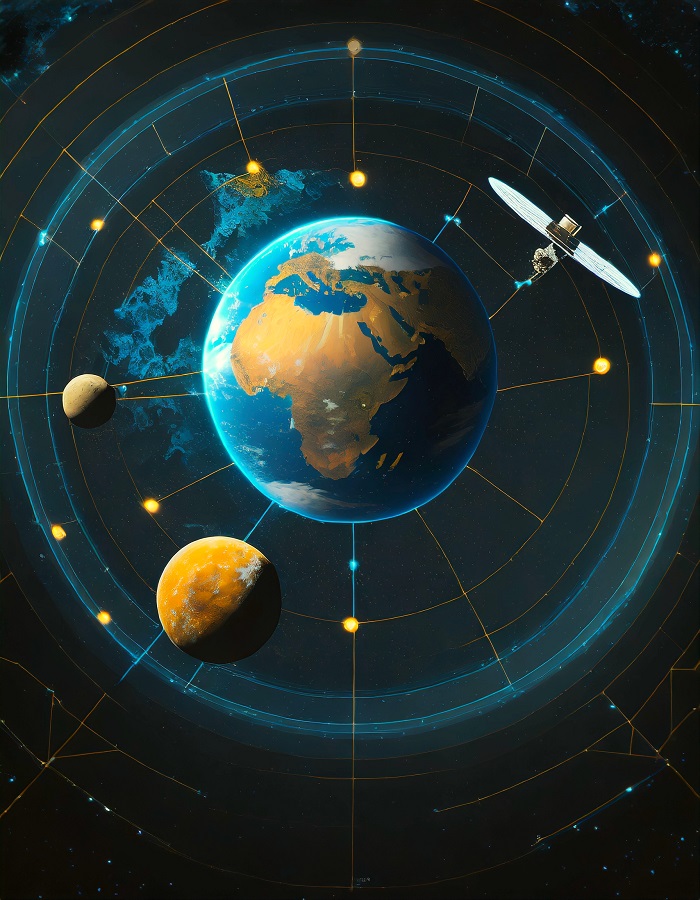
This doctoral thesis of Ioana Bratu addresses the challenges of attributing liability for damage in the context of integrating Global Navigation Satellite Systems (GNSS) as essential features of Artificial Intelligence (AI) technologies. The topic represents a pressing issue in a variety of sectors such as aviation, maritime, and road transport, increasingly characterized by high autonomy levels, leading to operational efficiency but also being threatened by significant risks.
Satellite signals may be easily interfered with, which can cause disturbances in the normal operation of AI systems, potentially causing accidents involving loss of life, property damage, or economic losses. For exploring the legal intricacies of such scenarios, after setting the scene and defining the concept of ‘non-contractual liability’ from a civil law perspective, a dual approach is undertaken, involving the synergy ‘international space law – technology law’. Under international space law, the debate centers on the key liability elements provided by the Liability Convention: the space object, damage, and causation. The traditional doctrinal interpretations of these terms do not allow compensation for damage caused by satellite signal failures, thus requiring a new approach where the ‘restitutio in integrum’ principle as well as the principles of justice and equity included in the Liability Convention are duly considered. From a technology law perspective, the GNSS liability problem is assessed through the lens of the proposals issued by the European Commission, in terms of AI governance and liability, specifically the AI Act, the AI Liability Directive, and the New Product Liability Directive. None of the above-mentioned proposals contain any specific provisions regarding GNSS-enabled AI systems. Due to this, the risk-based approach used for classifying AI systems via the AI Act is analyzed to assess whether GNSS-enabled AI systems are either prohibited, high-risk, or AI systems with minimal risks. A correct categorization triggers the applicability of different legal regimes, in the light of the AI Liability Directive, imposing a fault-based liability regime, and the New Product Liability Directive, imposing a product liability regime. The analysis of the legislative proposals, through the lens of GNSS-enabled AI, revealed a series of legal lacunae, which may cause a fragmented approach. To mitigating such risks, policy recommendations are included, which may serve as a useful tool for the European legislator.
Bratu’s PhD was carried out at the VU Amsterdam under the supervision of prof. mr. Arno Lodder and prof. dr. Frans von der Dunk. She defended her thesis on February 2nd 2024.
Ioana Bratu
Charting the Uncharted Waters: Non-Contractual Liabilities for Damage Caused by GNSS-Enabled Artificial Intelligence: Legal Challenges in International Space Law and European Tort Law
The dissertation is available at the repository of the VU Amsterdam.
234 p., ISBN 978 94 6469 718 6

